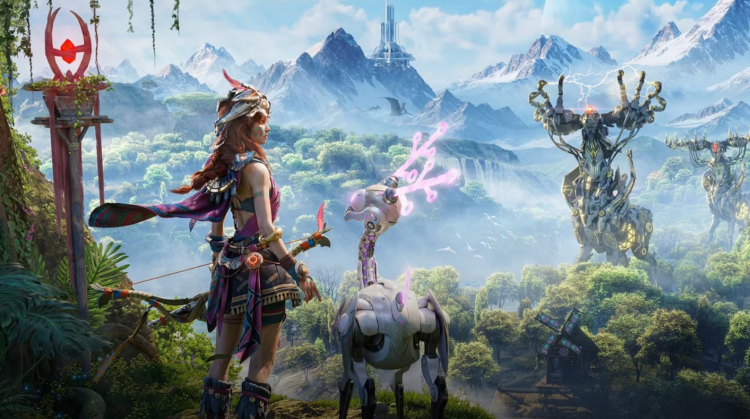Tencent Pushes Back Against Sony’s Horizon Zero Dawn Lawsuit
Tencent has responded to Sony’s lawsuit over the upcoming game Light of Motiram, filing a motion to dismiss claims that the project unlawfully copies the PlayStation studio’s acclaimed Horizon Zero Dawn. Filed in July, Sony’s complaint argued that the Chinese publisher’s new title represents a “rip-off” of Horizon, which debuted in 2017 and became one of PlayStation’s most successful new IPs.
Tencent’s defense takes aim at what it calls overreach on Sony’s part. The company argues that Horizon Zero Dawn is not as unique as Sony claims, pointing to decades of games with similar mechanics, themes, and presentation.
“By suing over an unreleased project that merely employs the same time-honored tropes embraced by scores of other games released both before and after Horizon—like Enslaved, The Legend of Zelda: Breath of the Wild, Far Cry: Primal, Far Cry: New Dawn, Outer Wilds, Biomutant, and many more—Sony seeks an impermissible monopoly on genre conventions.” — Tencent court filing
The motion highlights Sony’s own marketing language, which described Horizon Zero Dawn as “like no fictional world created before since.” Tencent counters that this claim ignores the influence of other open-world action titles, including Ninja Theory’s Enslaved: Odyssey to the West, which Horizon’s own art director once referenced in a behind-the-scenes documentary as a close comparison.

Sony’s case is further complicated by the fact that Light of Motiram is still two years away from release. Tencent argues that Sony’s claims are speculative, since the finished product may differ significantly from early promotional materials. The company also disputes Sony’s attempts to pin liability on Tencent Holdings, noting the complexity of its corporate structure and claiming that the parent company is not directly developing or publishing Light of Motiram.
“At any rate, Tencent Holdings is not the developer or publisher of Light of Motiram,” the filing states. “That Tencent Holdings applied to register the LIGHT OF MOTIRAM trademark does not suggest otherwise... the vast majority of overseas trademarks in the Tencent portfolio are registered by Tencent Holdings for trademark management purposes, not because Tencent Holdings is the entity that will develop, publish, create marketing materials for, or beta test the game.” — Tencent court filing
The filing goes beyond corporate technicalities, even challenging Sony’s argument that Aloy, the central character of Horizon, functions as the franchise’s brand identifier. Tencent suggests that because Aloy’s appearance varies depending on player choice, her design cannot serve as a consistent source-identifying element. In one example included in the motion, Tencent highlights a screenshot of Horizon where Aloy is looking toward a dinosaur rather than positioned as the visual focus, arguing that this undercuts Sony’s claim that Aloy herself is the core branding for the series.
Sony, however, maintains that Light of Motiram borrows too heavily from Horizon’s design, worldbuilding, and identity to be considered coincidental. With the game still in development, the lawsuit underscores the broader tension between what constitutes inspiration and what crosses into infringement.
In our previous coverage, we reported on Sony’s announcement of a Horizon Zero Dawn movie adaptation at CES 2025, a collaboration between PlayStation Studios and Columbia Pictures that aims to bring Aloy’s story to the big screen. The adaptation underscores Sony’s commitment to expanding Horizon as a multimedia franchise, making the protection of its IP all the more central to ongoing legal disputes.
The case also raises questions about how courts define originality in the modern gaming landscape. Many AAA open-world action games share mechanics such as crafting, base-building, and exploration of vast, enemy-filled environments. Whether Horizon’s mix of tribal culture, mechanized wildlife, and Aloy’s narrative journey is distinct enough to merit legal protection against Light of Motiram will ultimately be decided in court.
Tencent’s filing suggests that it sees Sony’s attempt as a precedent-setting move that could allow publishers to monopolize widely used gameplay features. Sony’s lawsuit, on the other hand, reflects a growing push from major studios to protect blockbuster IPs as they expand into films, television, and other media. For now, the outcome depends on whether the court agrees that Horizon’s design elements are unique expressions or genre conventions open to all developers.

Comments